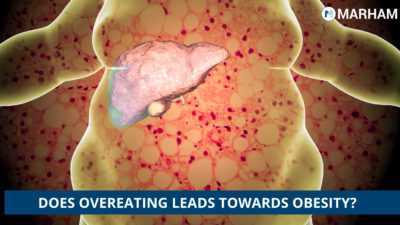Overeating is not the primary cause of obesity, according to a new study. Instead, modern dietary patterns characterized by excessive consumption of foods with a high glycemic load: in particular, processed, rapidly digestible carbohydrates, bear a large share of the blame for the current obesity epidemic. Come in and take a closer look;
According to the American Journal of Clinical Nutrition;
Foods trigger hormonal responses that alter our metabolism, resulting in fat storage, weight gain, and obesity. ‘The American Journal of Clinical Nutrition’ published the study’s findings. According to the USDA’s Dietary Guidelines, losing weight “requires adults to reduce the number of calories they consume from foods and beverages while increasing the amount of calories they expend through physical activity.”
This approach to weight loss is based on the century-old energy balance model, which states that consuming more energy than we expend leads to weight gain. Obesity and obesity-related diseases, on the other hand, have steadily increased despite decades of public health messaging encouraging people to eat less and exercise more.
The study argues that the energy balance model has fundamental flaws and that a different model, the carbohydrate-insulin model, better explains obesity and weight gain. Furthermore, the carbohydrate-insulin model points to more effective and long-term weight-loss strategies.


The energy balance model, according to lead author Dr. David Ludwig, an endocrinologist at Boston Children’s Hospital and a professor at Harvard Medical School, does not help us understand the biological causes of weight gain: “Adolescents may increase their food intake by 1,000 calories per day during a growth spurt, for example.
Is it the adolescent’s overeating that causes the growth spurt, or is it the adolescent’s hunger that causes them to overeat?” As a result, fat cells are instructed to store more calories, leaving fewer calories available to fuel muscles and other metabolically active tissues.
The brain believes the body isn’t getting enough energy, which causes hunger. In addition, as the body attempts to conserve fuel, metabolism may slow. As a result, we tend to stay hungry even as we continue to gain weight. The energy balance model ignores this crucial piece of the puzzle by claiming that all calories are the same to the body.
While the carbohydrate-insulin model is not new (it dates back to the early 1900s), The American Journal of Clinical Nutrition perspective is the most comprehensive formulation of this model to date, written by a group of 17 internationally recognized scientists, clinical researchers, and public health experts.
Reasons for Gaining Weight
As you know that Overeating is not the primary cause of obesity. But It’s difficult to deal with weight gain when you don’t know what’s causing it. While diet is the most common cause of weight gain, other factors such as stress and lack of sleep may also play a role. Possible causes of unintentional weight gain are listed below.


1. Sedentary lifestyle
Weight gain and chronic diseases are often caused by inactivity. Sedentary activities include sitting at a desk, watching TV, driving, and using a computer or phone. According to a study of 464 obese and overweight people, their average daily sitting time was 6.2 hours on workdays and 6 hours on non-workdays. The most significant contributor was work-related tasks, followed by watching television. You may take help from a nutritionist.
2. Undiagnosed Medical Issue
Although many lifestyle factors play a part in unintentional weight gain, medical conditions may also play a role. These are some of them:
- Hypothyroidism
- Polycystic ovary syndrome
- Anorexia nervosa
- Bulimia nervosa (BED).
3. Lack of sleep
Sleep is critical for overall health and well-being. Inadequate sleep can lead to weight gain, among other problems.
In a study of 92 women, those who slept less than 6 hours per day had the highest BMI and the highest levels of visfatin (a protein secreted by fat cells) when compared to those who slept 6 hours or more per day.
In a two-week study, those who slept 5.5 hours per night lost 55 percent less body fat and 60 percent more muscle mass than those who slept 8.5 hours per night while on a low-calorie diet. As a result, getting more sleep may help you lose weight.
4. Stress
Chronic stress is a common issue that has the potential to affect your weight. Cortisol, a stress hormone, has been shown to increase hunger and your desire for highly palatable, calorie-dense foods, which can lead to weight gain. Furthermore, studies show that people who are obese have higher cortisol levels than those who are not. Stress management, it turns out, may help you lose weight.


Final Notes
Unintentional weight gain can be caused by a variety of factors. Sleep deprivation, sedentary activities, and eating too many processed or sugary foods are just a few of the habits that can lead to weight gain. Yet, by taking a few simple steps, such as practicing mindful eating, exercising regularly, and focusing on whole foods, you can achieve your weight loss goals and improve your overall health.
Book an appointment now, to answer all your queries. You can book an appointment with the top nutritionists in Pakistan through Marham by calling at Marham helpline: 0311-1222398 or by online booking facility through the website or Marham mobile app.
Can’t Find The App?
Android Users:
https://play.google.com/store/apps/details?id=controllers.marham.marhammed&hl=en
Drop a review for us at play store if you’ve had a good experience!
iPhone Users:
https://apps.apple.com/pk/app/marham-find-a-doctor/id1095243102
Stay Home. Stay Safe!
FAQ’s
Is it true that overeating causes weight gain?
You will gain weight if you consume more calories per day than you burn. Excessive calorie intake is promoted by mindless eating, frequent snacking, and calorie-rich, nutrient-poor dietary choices.
Why don’t I gain weight when I eat too much?
You’re less likely to gain weight if you eat at a slower pace and chew more because your brain has more time to signal your body that you’re full. Experts advise that you eat your meals sitting down because standing up is often associated with snacking, and you may eat more than you require.
What causes you to gain weight quickly?
Here are some foods that are high in energy and good for weight gain: Almonds, walnuts, macadamia nuts, peanuts, and other nuts Raisins, dates, prunes, and other dried fruits Whole milk, full-fat yoghurt, cheese, and cream are examples of high-fat dairy.
Do bananas make you gain weight?
Eating bananas does not cause weight gain, according to scientific evidence. Bananas have a small amount of fat in them. Bananas have a total calorie content of around 110 calories per 100 g. Bananas are not fattening in and of themselves.

